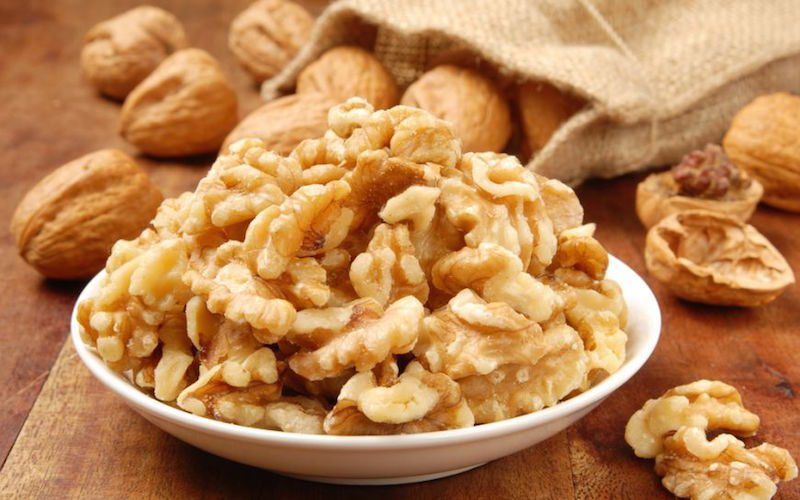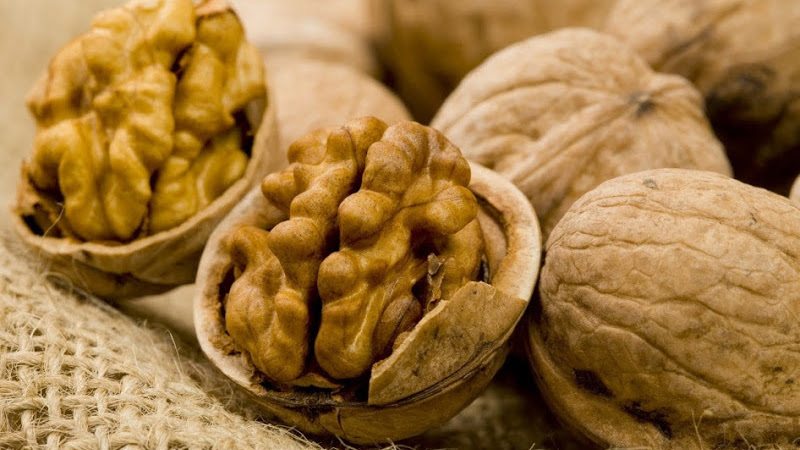Walnuts
Episode #8 of the course “Superfoods you should know about”
A small shelled and husked walnut is literally a tough nut to crack, but well worth it. More than any other nut, walnuts have the highest concentrations of antioxidants—especially those bound to fiber. Their nutritional profile is quite uncommon; walnuts are unlike any other food, containing a unique combination of fiber, protein, fatty acids, and trace minerals. The “meat” of the walnut can be difficult to obtain, but once removed from the husk, walnuts are served raw, roasted, pickled, and stewed. They can be ground, creamed into a butter, or pressed into oil.
Walnuts have been a welcome part of people’s diets for centuries. People used the ground husks and skins of the nuts for herbal remedies and cosmetics for hundreds of years. Thought to contain “miraculous” chemical combinations, some holistic medicines have claimed walnuts can “cure” diseases like cancer or diabetes, but research is ongoing to determine the nut’s effectiveness in treating symptoms of these illnesses.

The walnut’s unique combination of amino and fatty acids makes it one of the best foods for supporting essential healthy function in the brain, heart, liver, skin, and eyes. It is a food known for its anti-inflammatory properties, and it may even improve a man’s reproductive health.
Because of their high antioxidant levels, walnuts do not spoil easily in the shell, but once exposed to air, they become susceptible to toxic molds, fungi, and bacteria. If walnuts go bad, immediately discard the entire container, because they release toxic chemicals when they begin to break down. Properly stored walnuts can last, and be enjoyed, for several weeks. They make a great snack and offer children an amazing low-sodium alternative to other snacks, contributing to a full lifetime of health benefits.
Recommended book
“DIY Nut Milks, Nut Butters, and More: From Almonds to Walnuts” by Melissa King
Share with friends

